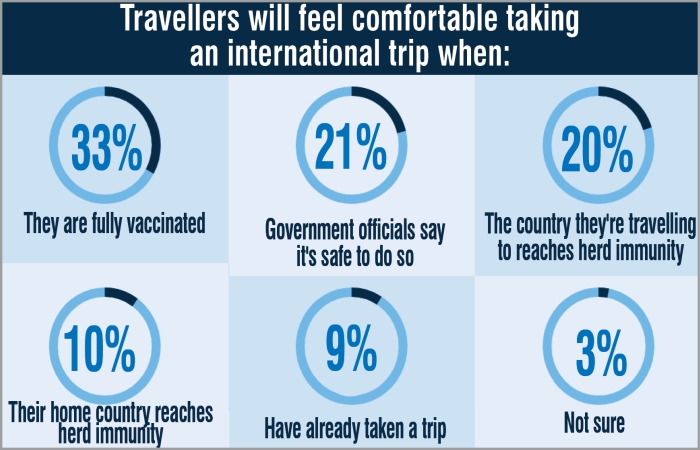More than a year into COVID-19, Flywire examines the major travel trends to expect based on consumer attitudes from frequent travellers in five countries. From destination preference to health & safety, six key insights will help travel companies everywhere prepare for a significant bounce back.
People will spend more money on travel than ever before
The study revealed that 70 per cent travellers will spend more money on travel in 2022 than they have in the last five years. The money they saved not travelling during COVID will boost their travel budget this year and next. 64 per cent respondents said when they travel again, their budget will increase for the remainder of this year in comparison to the past two years. 63 per cent are willing to pay more now to secure a spot on a trip they’ll take in the future. About 76 per cent would pay more for a trip with certain additional health and safety protocols, such as rapid testing.
Travel payment experience matters Ease of payment experience can impact which company travellers choose to book with. 89 per cent say ease of payment is important. 70 per cent travellers feel ease of payment impacts their choice of travel agent and/or tour operator. 90 per cent of them prefer to be billed and/or pay in their own currency for trips. Looking at the payment method preference, it was revealed that most frequent travellers prefer paying through credit card (78%).
Boundaries between work & travel are blurring
People are booking longer stays to take advantage of work from home flexibility. 34 per cent of travellers worked from either.
About 25 per cent worked for a few days from domestic accommodations, such as a hotel or resort during the pandemic while 17 per cent worked for a few days from international accommodations, such as a hotel or resort during the pandemic. 10.57 days is the average time travellers have worked away from home during the pandemic. 59 per cent say remote work will be a consideration in their future travel plans.
First vacations post-pandemic will look a little different
About 75% travellers said they will look for a destination where there are not a lot of people. 65 per cent will take a much longer vacation than usual for their first post-pandemic trip. 93 per cent are now more likely to choose a provider with a flexible cancellation policy. 85 per cent are more likely to book at a resort, timeshare, or vacation club than they were before the pandemic. Most travellers preferred to visit a beach for their first vacation.
Not travelling can strain mental health
Travelling can be emotional. Business travellers may dread it, while vacationers long for it. 68 per cent have negative feelings about not travelling while 34 per cent have positive feelings. 84 per cent frequent travellers are as enthusiastic about travel as they have ever been.
Travel will resume soon and trips will last longer
65 per cent of the travellers say the first vacation they take after the pandemic will be much longer than their typical vacation.
Demography wise, men are more likely than women to take a long post-COVID vacation. Younger people in the age bracket 24-34 are more likely to take a long post-COVID vacation.
 TravTalk India Online Magazine
TravTalk India Online Magazine





